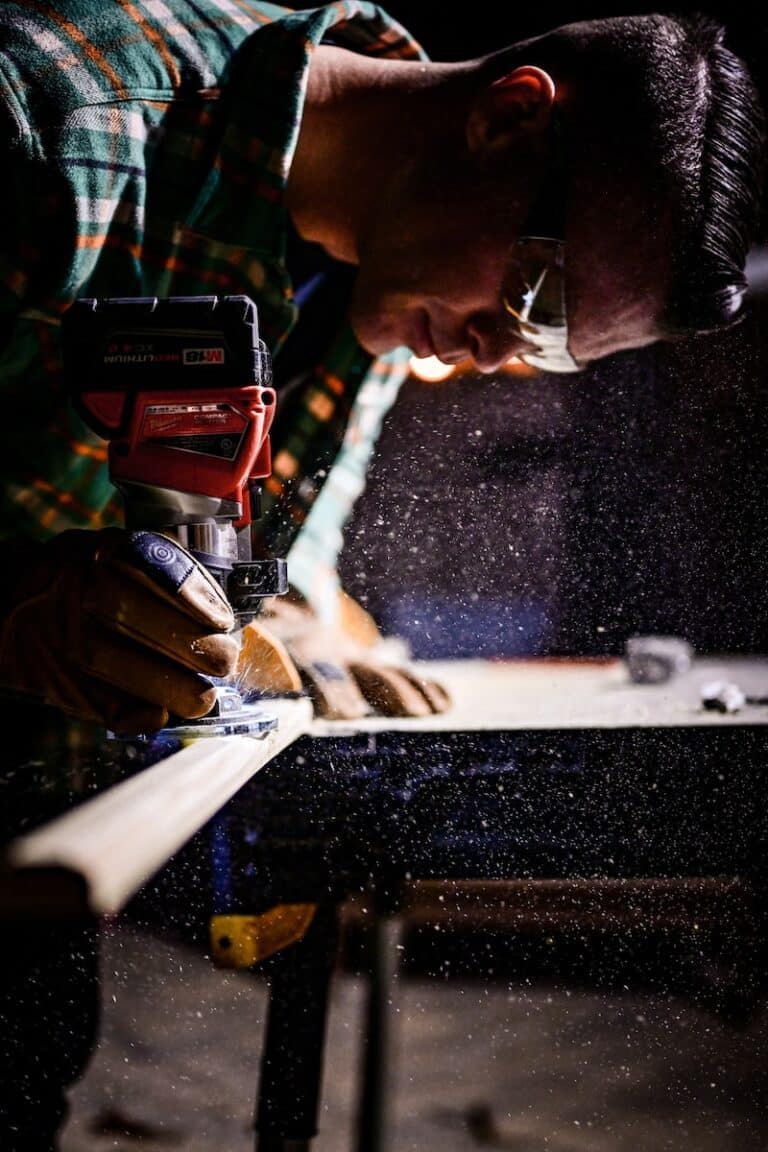You may think of compost as brown muck or, if you’re an avid gardener, “black gold.’’ But it’s also something of a silver bullet — with the potential to save both money and the environment.
That’s one reason many communities around Boston are encouraging residents to compost their food scraps instead of tossing them in the trash, with programs ranging from discounted backyard compost bins to free weekly curbside pickup. With the recycling industry in a state of upheaval and waste disposal getting more expensive, communities are taking a hard look at what they haul away on trash day — and realizing food scraps don’t belong in garbage trucks.
When food waste gets composted — whether in a backyard bin or a farm-scale facility — it releases carbon dioxide, as bacteria and fungi consume the carbon and break down the organic matter. That may not sound ideal, but when organic waste ends up inside a landfill, where there’s no oxygen, it releases methane instead — a far more potent greenhouse gas that traps about 30 times more atmospheric heat than carbon dioxide.
“If you don’t bury those food scraps in the landfill, they don’t produce methane. It’s a very avoidable problem,’’ said Kirstie Pecci, director of the Zero Waste Project at the Conservation Law Foundation. What’s more, composting those food scraps can actually sequester carbon, locking it into the ground.
Compost also replenishes the soil, which we’ve spent centuries abusing and depleting; in a Reuters report, the United Nations estimated that the world will run out of fertile topsoil in just 60 years. “The soil is like a bank. We are drawing on it and not depositing back into it,’’ said Conor Miller, founder of Cape Ann-based Black Earth Compost. “We are slowly going broke.’’
Good soil can help mitigate some effects of climate change. “It’s also a great way to hold water where we need it,’’ said Pecci, as extreme flooding becomes more of a problem. “We need good healthy soil with good healthy plants on it, because that acts as a sponge.’’
Environmental benefits aside, food scraps are also heavy — comprising about 25 percent of household garbage by weight, according to Pecci. In an industry where pounds convert to dollars, “communities can save a lot of money if they divert their food scraps and yard waste from the waste stream,’’ Pecci said. As New England landfills close and incinerators hit capacity, burning and burying waste will only get more expensive, she added.
Those economics and a stated goal of cutting waste by 80 percent by 2050 led Cambridge to launch free citywide curbside organics pickup in April 2018, after a series of pilot programs. It took a $1 million upfront investment, said recycling director Michael Orr, which included the cost of heavy-duty locking curbside carts and kitchen counter bins for each household, a dedicated truck, and ongoing marketing and education.
“But the marginal cost for this program is less expensive than what we were doing. It costs us about $60 to dispose of a ton of food waste, whereas it costs $100 a ton to dispose of trash,’’ he said. That gap will only widen. “We’re fairly certain this will be a good deal in the long run.’’
Cambridge resident Tony Rachupka said he’s found the process simple and convenient. “It goes out the same day as the trash, once a week,’’ Rachupka said, and there are directions on the locking bin that explain what can and can’t go in. “It’s pretty straightforward how to use it, even though we do have some … neighbors who sometimes put their recycling in there,’’ he added.
Orr said residents were initially concerned that curbside composting would encourage rats, but it’s actually helped reduce rodent problems. Compared with flimsy trash barrels that rats can chew through, “our compost bins are thicker plastic, and they have locks on them,’’ he said.
The countertop bins have ventilation holes, which, contrary to what you’d expect, actually help with the odor, Orr said. “It doesn’t smell at all, which I was a little worried about,’’ said Susan Moody, also of Cambridge. “Our trash now doesn’t smell at all, either, because we’re not putting food scraps in it … and now we’re putting out less trash.’’
And that’s where communities can realize more savings. “Tipping’’ fees, or the per-ton cost of disposing waste, are only one part of the equation; pickup and hauling are even more costly. But when you don’t have as much trash, and it isn’t full of rotting food, you may not need it picked up as often. So the real savings kick in when a town is able to scale back its garbage collection, said Gretel Clark, chairwoman of the Waste Reduction Committee in Hamilton, which instituted curbside composting a decade ago.
“The real incentive, when we first put this into effect, was to make the solid waste pickup every other week,’’ she said, while maintaining weekly recycling and compost pickups. “If you didn’t want to hold onto that smelly stuff, you put it out with your compost.’’ Some residents fought and succeeded in bringing back weekly trash pickup, though, “and of course our composting rates have gone down by half,’’ Clark lamented.
With the help of a grant, Newburyport ran a two-year pilot program in which 425 households received curbside compost pickup, diverting 150 tons of food scraps from the city’s waste stream. The program went private after the pilot ended in late 2017, though. “It was totally a money issue; the city could not afford to roll out citywide curbside organics,’’ said recycling and energy manager Molly Ettenborough. But she remains committed to some form of citywide composting, and the pilot created momentum: Nearly 400 families now pay $1.89 a week for curbside pickup from Black Earth, each one keeping about 11 to 12 pounds of food scraps out of the city’s garbage haul per week.
“I think by having a composting program, whether it’s a pilot or full blown, it teaches people to think about their waste in a different way,’’ Ettenborough said.
In addition to the handful of communities who offer curbside compost pickup, 30 more provide free drop-off bins, according to the Massachusetts Department of Environmental Protection — including Boston, through a pilot program called Project Oscar. But you don’t have to wait for your city or town to start composting. Black Earth and Bootstrap Compost, among others, offer curbside pickup all over Metro Boston, with rates that tend to drop as more people sign up.
In many parts of New England, Pecci said, it makes more sense just to compost in your backyard. “That doesn’t have to mean anything fancy,’’ she said. “I don’t have an actual composter; I just have a pile.’’ But if you’re concerned about pests and other wildlife, a closed container is the way to go — and more than 100 Massachusetts communities provide them to residents at a discount.
It’s also easy to do and hard to mess up, said Cheryl Monroe, a master gardener in Central Massachusetts who blogs at Garden in the Burrow. Even if you’re not particularly diligent about maintaining your pile, “compost happens. It just may take longer,’’ Monroe said.
“A good compost has four ingredients: greens, browns, moisture, and oxygen,’’ Monroe said. Greens include fruit and vegetable scraps, coffee grounds, eggshells, and grass clippings applied in small layers so they don’t smother the pile, she said. Balance those nutrient-rich scraps with carbon-heavy “browns,’’ which include twigs, leaves, straw or hay, pine needles, shredded paper, sawdust, paper plates, and paper towels. The ratio should be about three parts brown to one part green, Monroe added. Then just turn the pile periodically with a pitchfork or shovel to ensure it’s getting oxygen.
The compost is ready to use when it’s brown and crumbly, and you can no longer recognize the materials that went into it, save for bits of wood. Compost helps almost any type of soil, improving its structure and ability to retain the nutrients, moisture, and oxygen plants need. And though it’s not considered a fertilizer, Monroe said, compost contains vital nutrients for plants and can help them grow healthier and more resilient.
Eric Hall, a member of the Wollaston Garden Club in Quincy, has developed a seasonal rhythm with his backyard compost tumbler. “In the spring, I’ll spread the aged compost from the tumbler in the garden beds around the perennials as they break through the soil,’’ Hall said, which keeps them moist between rainfalls and adds low levels of nutrients and necessary microorganisms. With new plants or divided perennials, he creates a bed of compost and soil, and continues to spread compost on the surface all summer long to nourish the soil and maintain moisture. By late fall, dormant plant trimmings go back in the tumbler, completing the cycle.
But don’t feel like composting is worthwhile only if you’ve got a green thumb, Pecci said. Even if you don’t have a gorgeous garden bed, a humble compost pile can help your lawn if you simply turn it over occasionally and rake the finished product into worn-out patches of your yard. “I think sometimes people put a lot of pressure on themselves to do it the ideal way, and you don’t have to,’’ Pecci said. “The main point is to get the food waste out of your landfill or incinerator.’’
If all else fails, you can always call the pros. “Backyard composting is like keeping a fire going,’’ said Miller, of Black Earth. “You have to keep adding and rearranging things to keep the burn going. Most people don’t have the passion to put time into it, so we get lots of calls asking if we can take away their semi-degraded lump.’’



